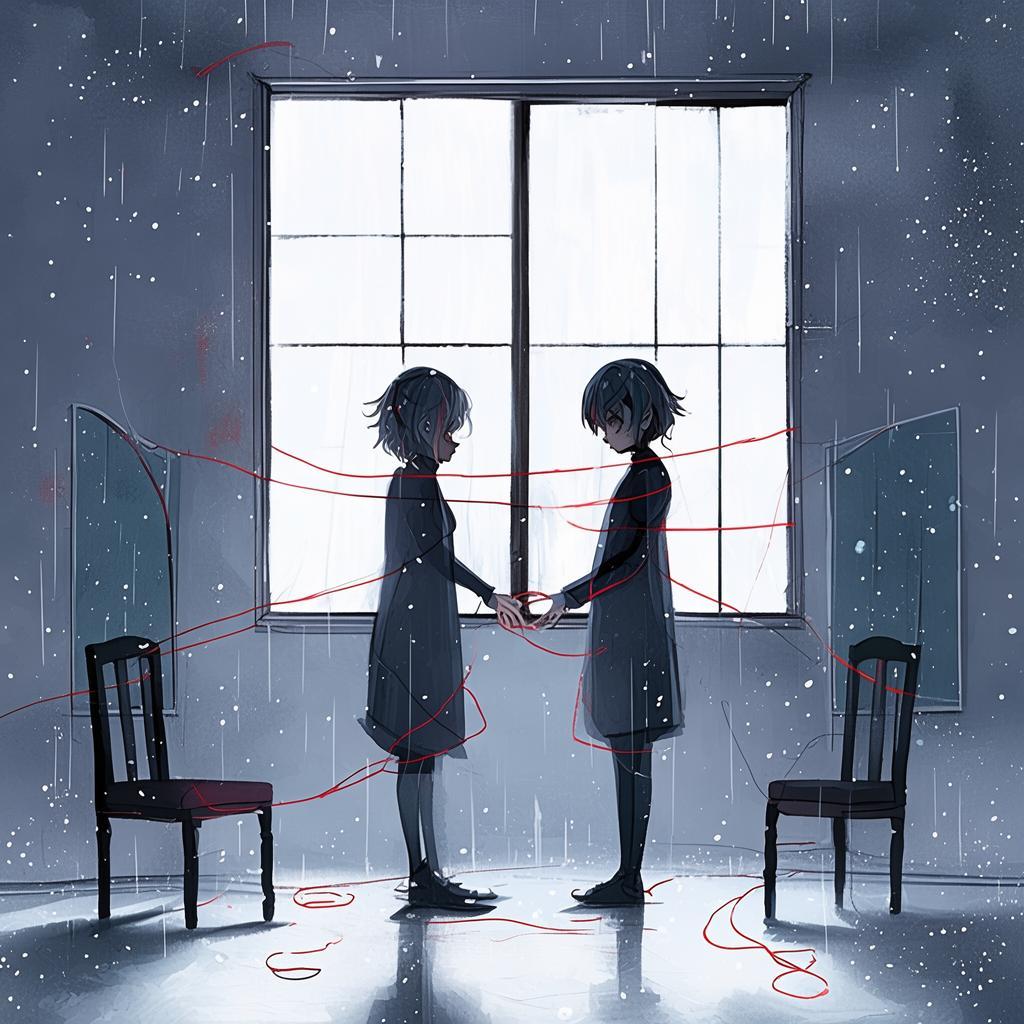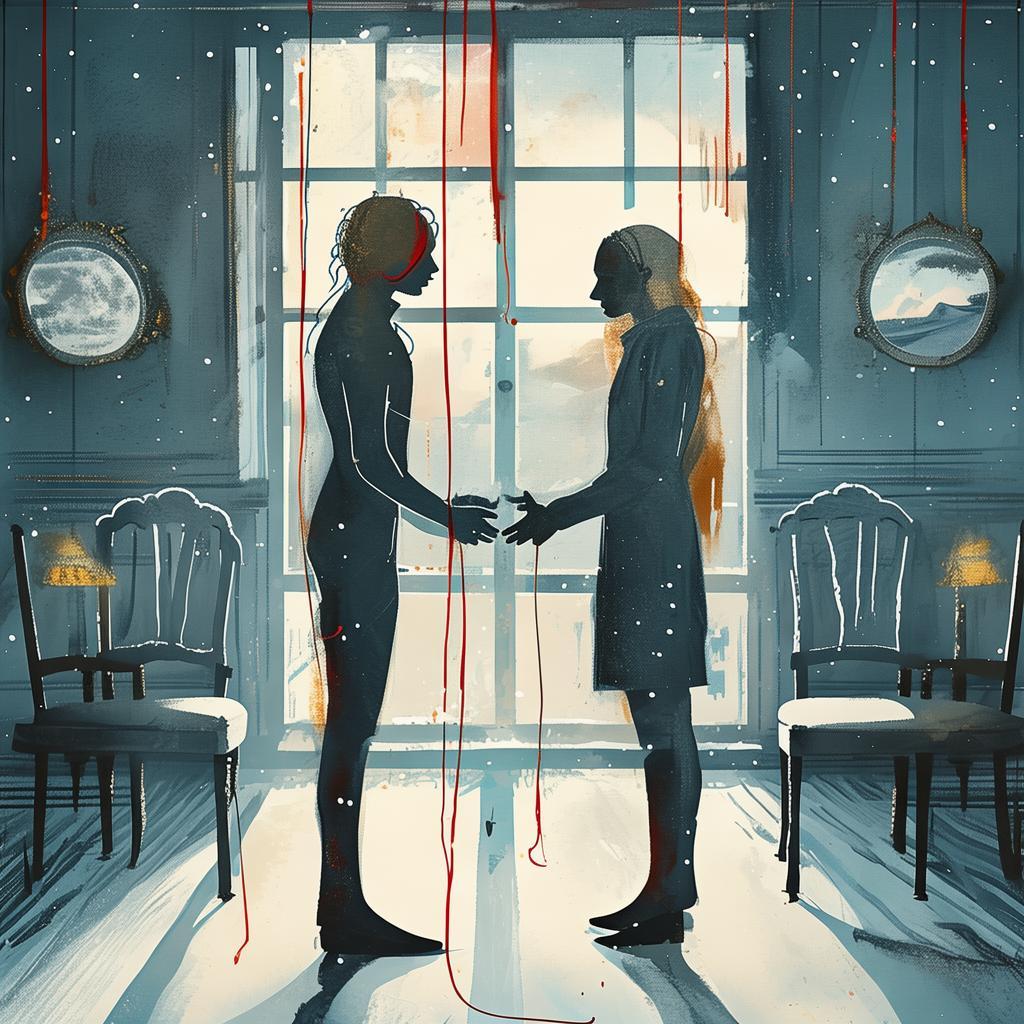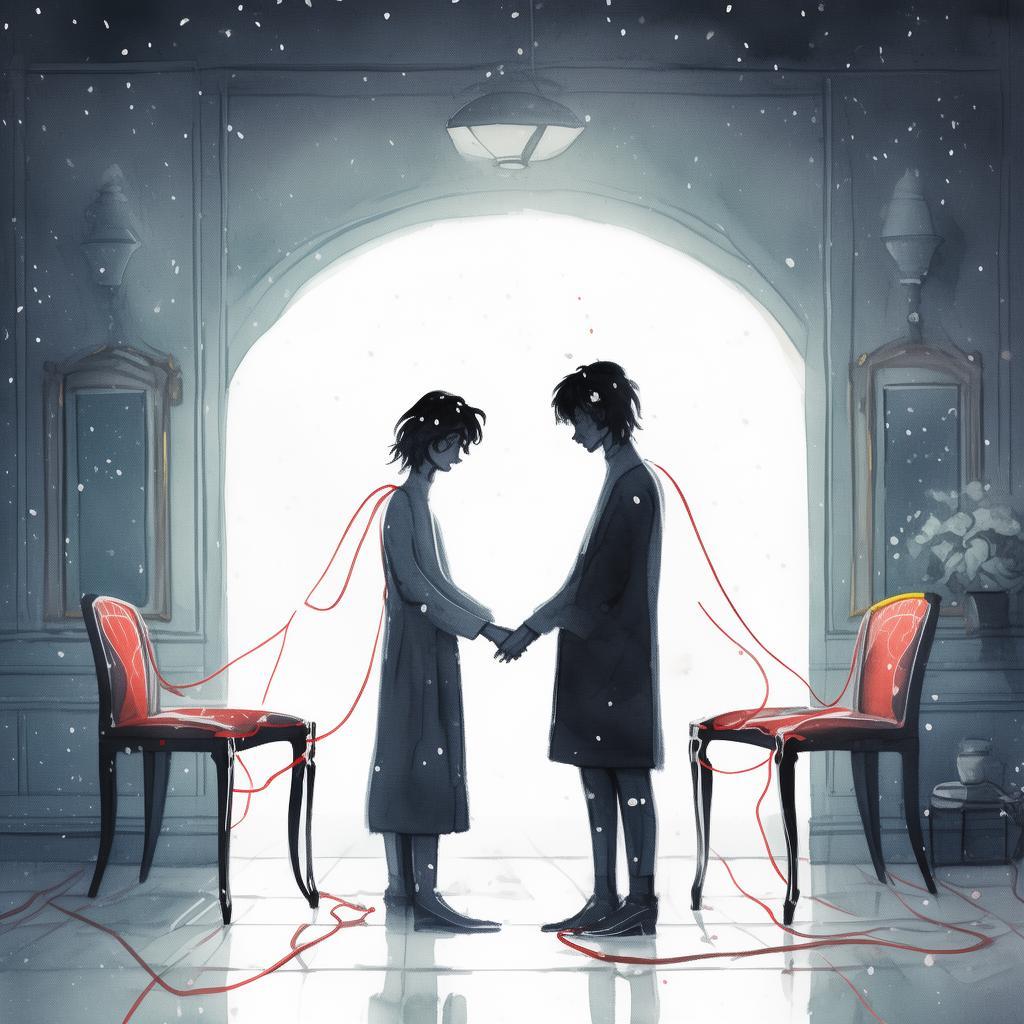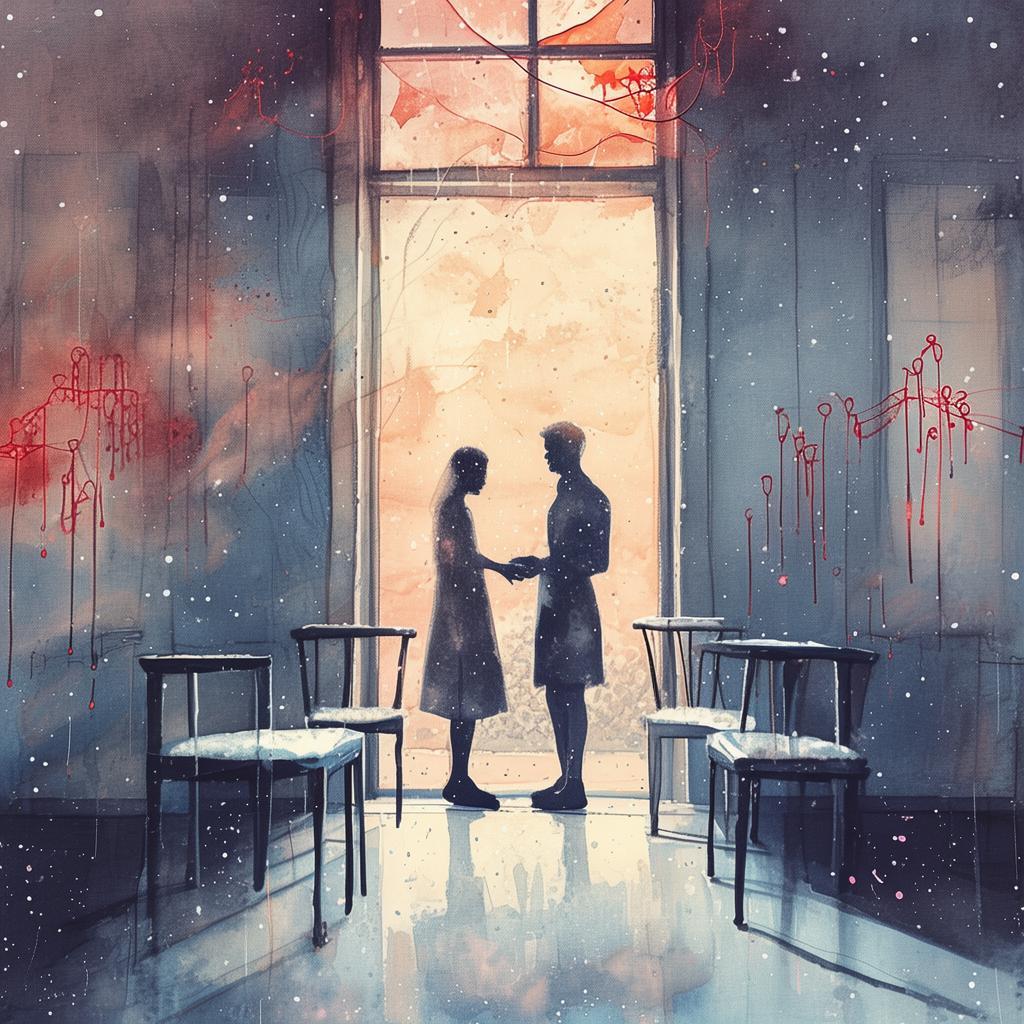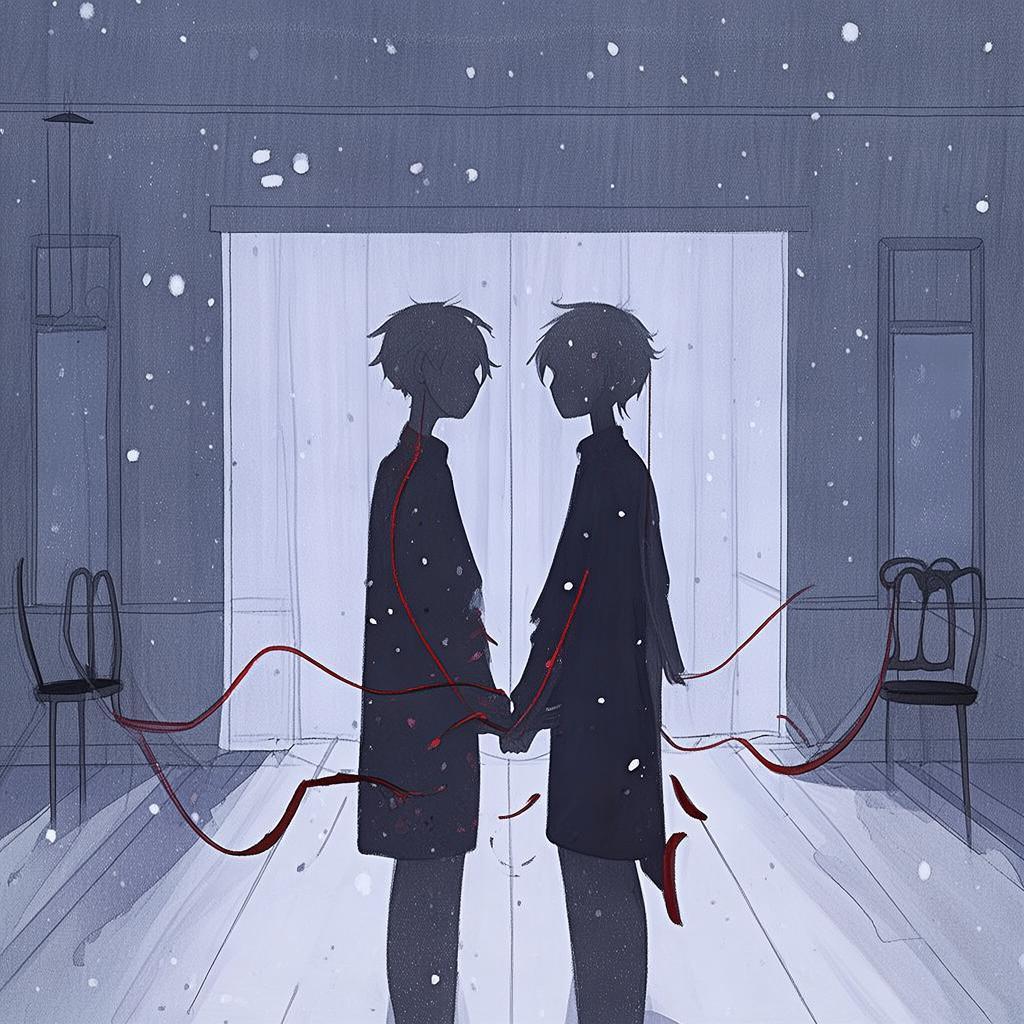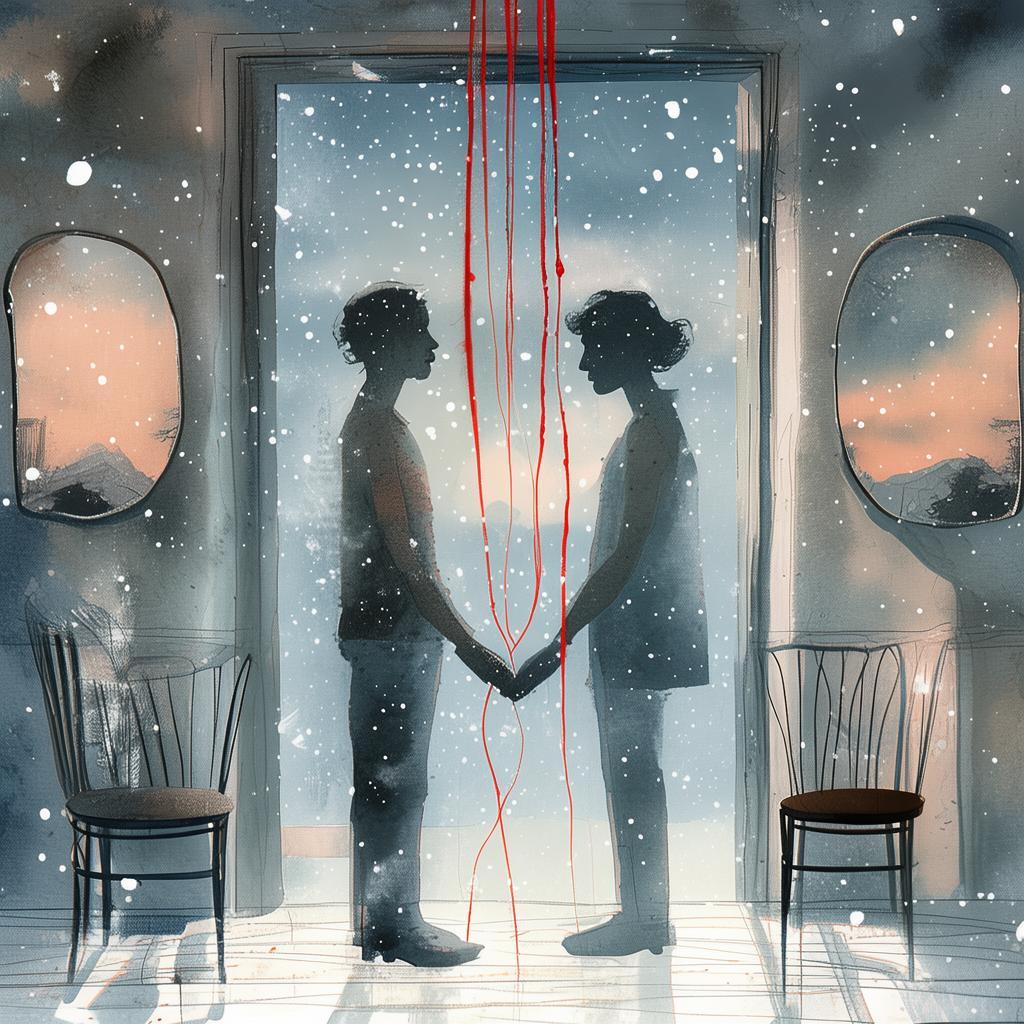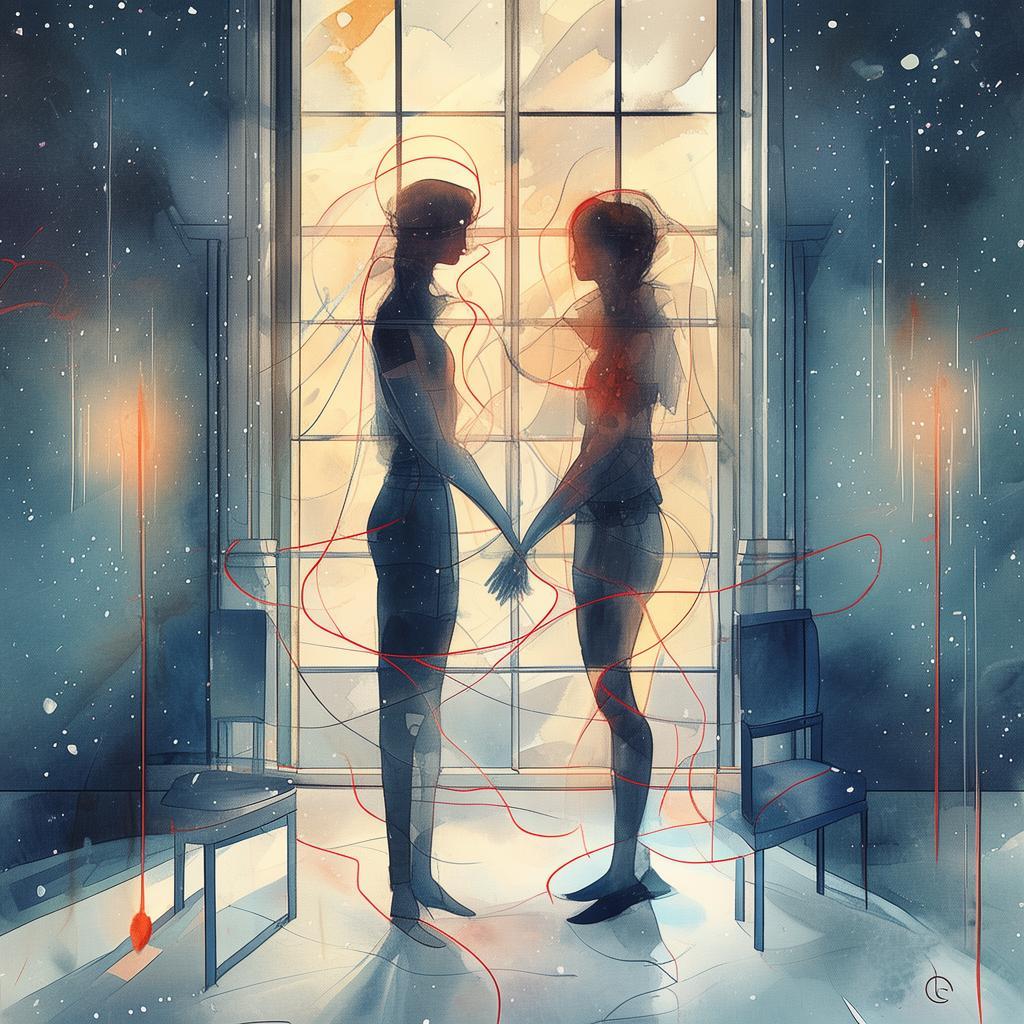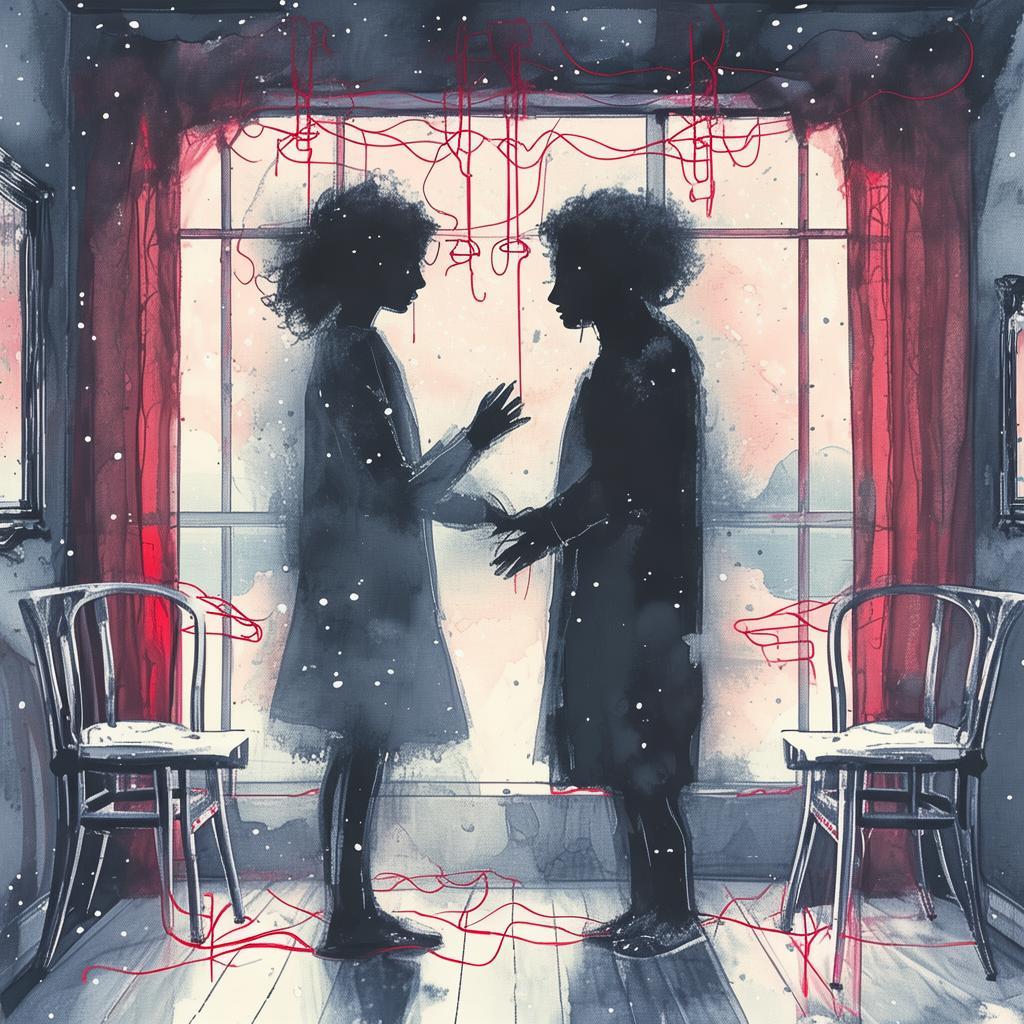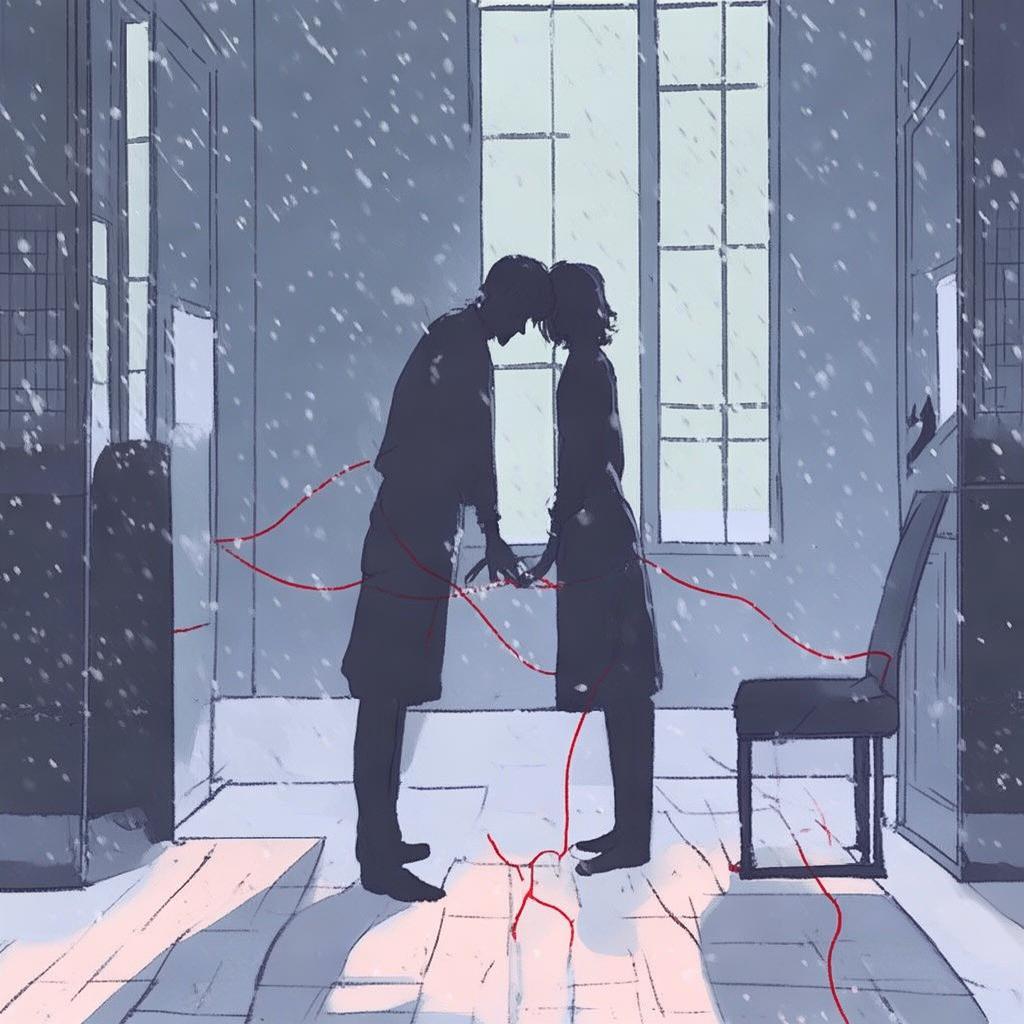The Conductor's Requiem: A Love That Echoes in the Shadows
The grand opera house was shrouded in shadows, the air thick with anticipation and the scent of aged wood. Detective Kian Li stood at the edge of the stage, his silhouette framed by the flickering lights of the house. The detective was known for his sharp mind and cold demeanor, a man who had seen the darkest corners of the city. Yet, there was a warmth in his eyes that contradicted the frostiness of his exterior—a warmth that belonged to someone else.
He turned his gaze to the conductor, a man whose name was whispered in hushed tones behind the curtains. The conductor, Chen Wei, was a man of few words and boundless talent. His fingers danced across the keys with a passion that only the true masters of their craft could muster. The music he created was not just sound—it was a story, a symphony of life, love, and death.
The opera was "Detective's Symphony," a musical thriller that promised to unravel the mysteries of a city steeped in corruption and secrets. It was a story that mirrored the lives of its creators, intertwining their fates in a way that was as inescapable as the melodies that filled the air.

The night of the opera, the house was filled to the brim with spectators, all eager to uncover the mysteries that would be revealed on stage. Kian and Chen, however, were not there to watch the show. They were there to investigate a new case—a case that seemed to echo the themes of the opera itself.
The detective had received a cryptic message: "The truth is hidden in the music." It was a challenge, a riddle that Kian was determined to solve. As the lights dimmed and the orchestra began to play, he knew that the answers he sought were woven into the fabric of the music itself.
The first act of the opera depicted a love story, one that was as beautiful as it was tragic. It was a love that defied all odds, a love that was destined to be destroyed. As the music swelled, Kian's heart ached, feeling the pain of the characters on stage. He knew that this love story was not just a plot device—it was a reflection of the love he had found in Chen.
Chen, who was deeply in tune with the music and the characters, seemed to sense Kian's presence. Their eyes met, and for a moment, time stood still. It was a connection that transcended words, a silent promise of understanding and support.
As the second act unfolded, the opera delved into the darker aspects of human nature. The music became a haunting melody, a reminder of the darkness that lurked just beneath the surface of every life. Kian's mind raced as he tried to piece together the clues, but the music seemed to be a labyrinth, each note leading to another question without ever providing an answer.
The third act brought the story to a crescendo, as the detective faced the ultimate challenge. The music grew louder, more intense, a symphony of danger and desperation. Chen's eyes were filled with a mixture of fear and determination as he conducted the final movement.
In the heat of the moment, Kian and Chen found themselves in the midst of the action, their roles blurring as they became both detective and protagonist. The detective was no longer just an observer; he was part of the story, and the story was no longer just a tale—it was their reality.
The climax of the opera, and their lives, was a series of unexpected twists. Kian found himself facing off against the very man who had once been his mentor, a man who had become his greatest adversary. Chen, caught in the crossfire, was forced to choose between his love for the detective and his duty to the opera.
The music reached a fever pitch, and as the final note resonated through the house, Kian and Chen were left standing in the spotlight, the fate of their love hanging in the balance. The detective, torn between his duty and his heart, realized that the answers he sought were not in the music but in the man standing next to him.
With a final, desperate gesture, Kian reached out and took Chen's hand. The conductor, who had been torn between his love for the detective and his loyalty to the opera, nodded, understanding that the music had led them to this moment, that the story they were a part of was more than just a tale—it was their destiny.
The ending was not a twist, but a reflection of their journey. As the curtain fell, the detective and the conductor found themselves in a quiet corner of the house, away from the crowd. They sat in silence, listening to the echoes of the music that had filled the room only moments before.
In that silence, Kian and Chen found their truth, their love, and the understanding that some stories are not meant to be solved, but to be lived. The opera had ended, but their story was just beginning—a story of love, mystery, and the power of music to bring even the darkest souls to light.
✨ Original Statement ✨
All articles published on this website (including but not limited to text, images, videos, and other content) are original or authorized for reposting and are protected by relevant laws. Without the explicit written permission of this website, no individual or organization may copy, modify, repost, or use the content for commercial purposes.
If you need to quote or cooperate, please contact this site for authorization. We reserve the right to pursue legal responsibility for any unauthorized use.
Hereby declared.
